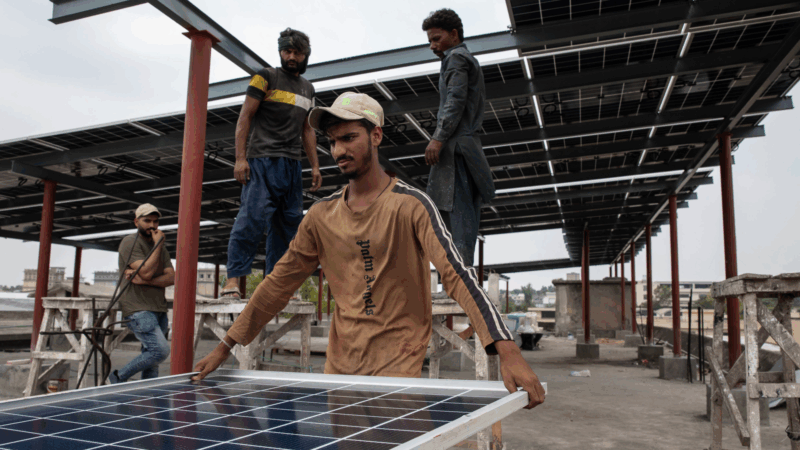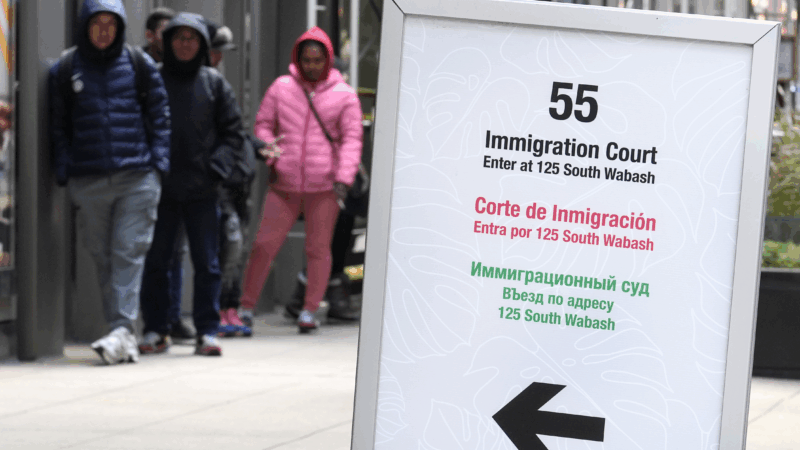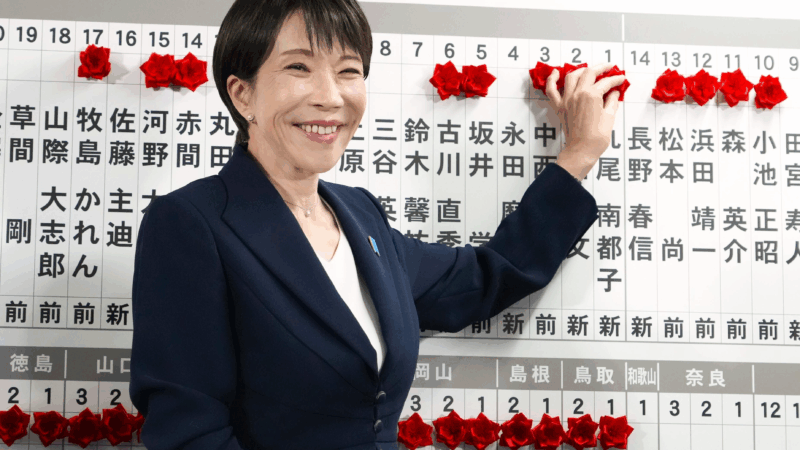Pakistan is tapping into solar power at an ‘unprecedented’ rate. Here’s why
ISLAMABAD — Muhammad Zia ur Rahman got the idea to install solar panels on his house after he saw some going up on a mosque in his neighborhood in Islamabad, Pakistan’s capital city. The mosque had been struggling to afford rising electricity prices to keep fans going in the country’s longer and more frequent heat waves, so community members pooled money to buy a rooftop solar system. It brought monthly bills down to almost zero.
When Zia saw the economic difference solar energy could make, installing panels at his own home felt like a no-brainer. So, in mid-2021, he covered his rooftop garden in shiny panels — hoping the strong Pakistani sun would enable him to earn back his initial investment and eventually provide some relief from rising electricity costs. “We made a conscious decision,” says Zia, 75, who is retired from a career in marketing and supply chain. “To save on the electricity bill, we should go for solar.”
Over the last four years, nearly everyone on his tree-lined street in Pakistan’s capital has followed suit. Solar panels have popped up on rooftops all around him. “I have them in front of my house, right and left — everywhere,” Zia says.

Pakistan is in the midst of a solar boom that has rapidly turned the country into one of the world’s largest new adopters of this renewable energy source, according to data from global energy think tank, Ember. This solar transition is driven by demand from frustrated Pakistani citizens, who have seen electricity prices skyrocket in recent years.
The boom has materialized thanks to an overabundance of solar panels available from neighboring China, which has been steadily ramping up its production of solar technology.
The speed of solar adoption in Pakistan has been unprecedented, says Jan Rosenow, leader of the energy program at the Environmental Change Institute at the University of Oxford. “The scale of solar being deployed in such a short period of time has not been seen, I think, anywhere ever before.”
This became apparent last year, when solar imports to Pakistan more than tripled from just one year earlier, approaching $2.1 billion, according to data from Renewables First, an energy and environment think tank in Islamabad. The boom looks set to continue, since Pakistan has already imported 80% of last year’s milestone amount during the first nine months of 2025.
Affordable, reliable solar fills a gap
Pakistan’s solar boom grows out of a decades-long power sector crisis, which has caused many Pakistanis to lose faith in the state’s ability to consistently provide reliable electricity.
The country has struggled to maintain its aging grid. And its outdated infrastructure and faulty distribution systems are blamed for power outages and even country-wide blackouts. These issues persist as heat waves intensify — sometimes over 110 degrees Fahrenheit for days on end — which scientists say are likely the result of human-caused climate change.
Pakistan also has increasingly unaffordable electricity, with power prices more than doubling in the last three years. The price hikes have stemmed from fluctuations in global energy prices, the depreciation of Pakistan’s currency and the government’s rollback of energy subsidies, which previously made electricity more affordable. Pakistan made these subsidy reforms in recent years because of loan requirements from the International Monetary Fund, or IMF, which has lent Pakistan more than $10 billion in the past decade alone to keep its economy afloat.
Waqas Moosa, chairman of the Pakistan Solar Association, a trade group advocating for the adoption of solar technology, says these conditions pushed Pakistanis to take matters into their own hands. “Individuals have made this decision,” he says. “So, it’s like a democratization of solar.”

Pakistan’s solar boom started to take off in 2023 when the price of solar panels from China dropped by more than 40% as China ramped up its exports. Pakistani importers saw the potential to make a profit and bought them up en masse, selling them across the country. The solar transition further sped up in 2024, as the price of Chinese solar panels dropped even more, flooding the market with technology that many Pakistanis couldn’t previously afford.
Adnan Shams, an electrician in Islamabad, says he has experienced the boom firsthand as more people call on him for solar installation. Earlier this summer, he attended a solar training course at National Skills University Islamabad, where the instructor taught students how to install panels. “[Solar] is beneficial in the long run, which is why the work is increasing,” he says.
The proliferation of cheaper and more reliable batteries, used to store solar energy and also imported from China, now looks set to advance solar adoption as customers look for additional ways to reduce their bills and ensure a steady electricity supply.
Solar adoption reveals cracks in Pakistan’s power system
But the millions of new solar users — like Zia and his neighbors — are having an impact on the financing of Pakistan’s power sector.
That’s because of reforms that date back to the 1990s. Pakistan was then struggling to produce enough electricity for its growing population. So the country set up long-term contracts to pay independent companies to produce electricity, regardless of how much is used.
These days, people are using less power from the Pakistani grid to avoid high electricity bills, says Rabia Babar, data manager at Renewables First. “The electricity cost in the country has increased so people are in conservation mode. They use less electricity to save [on] their electricity bills,” she says.
As more Pakistanis add solar, demand for electricity from the grid has gone down, even though many still rely on the grid, especially at night.
As a result of this lessening demand and the government’s continued obligation to independent power producers, “the same number of payments needs to be made by a lesser number of consumers,” says Pakistan’s energy minister, Awais Leghari.
He says the government is troubleshooting how to bring more industrial customers onto the grid to offset residential customers who’re switching over to solar, while planning targeted subsidies for low-income users. “Our challenge is to get the demand to go up,” he says.
Pakistan’s capacity to generate electricity has also increased, with some residential and industrial solar producers selling the energy they make back to the grid by using net metering.
The Pakistani government has already taken several steps to regulate the residential solar industry, including lowering the rate it pays for electricity that household solar setups produce.
In June, the government also announced a 10% tax on imported solar panels into Pakistan — almost all of which come from China.
Khalid Waleed, an energy economist at the Sustainable Development Policy Institute in Islamabad, says any tax on solar panels could deter Pakistanis who are on the brink of being able to afford this technology. He says the people who might get priced out of buying solar are the same ones who will have to bear the brunt of already rising electricity costs. “Those who cannot afford [solar], for them, electricity prices are going up and will go up in the future,” he says.

Pakistanis around the country are already weighing the benefits of investing in solar. Dilawar Khan, who does small jobs for a local business and whose wife works as a housekeeper, says he is saving to buy a single solar panel. That would help run the air cooler that sits in the courtyard of his house. A cheaper alternative to air conditioning and widely used in Pakistan, it’s a bulky box filled with ice or water and a fan inside to blow that liquid out as cool air. Several neighbors in the village where he lives on the edge of Islamabad, have purchased solar panels. They have set the panels up on the ground in the courtyard of their houses to keep a fan or light running during daily power cuts, which can sometimes last for hours.
Khan says as soon as he can gather the funds, he will join them. “Those who have solar, they are using it, and they have electricity,” he says. “It should be in every home.”
And as for Zia, who installed solar panels on his rooftop garden four years ago, he is now preparing to buy a second set for his house to boost his electricity yield, along with batteries that can store the energy he produces. “Electricity costs have gone up so much,” he says. “It will save me money.”
Betsy Joles is a journalist based in Pakistan.
Transcript:
MICHEL MARTIN, HOST:
Pakistanis fed up with high utility costs are helping the country become one of the world’s biggest markets for solar energy. Betsy Joles reports from Islamabad.
BETSY JOLES, BYLINE: In a village on the edge of Pakistan’s capital city, Islamabad, chirping birds are drowned out by the whir of fans.
(SOUNDBITE OF FANS WHIRRING)
JOLES: It’s the only way to cope with the heat, says resident Shinas Nasib (ph).
SHINAS NASIB: (Non-English language spoken).
JOLES: “It’s so hot here, we’re all worried,” she says. In recent years, human-caused climate change has accelerated warming and contributed to extreme weather in Pakistan.
UNIDENTIFIED PERSON #1: (Non-English language spoken).
JOLES: Near Nasib’s house, goats and chickens graze outside under the blazing afternoon sun.
UNIDENTIFIED PERSON #1: (Non-English language spoken).
JOLES: Nasib and her neighbors usually spend peak sunlight hours during the summer inside. But when daily power cuts occur, the fans stop working. So Nasib’s family decided to invest in a solar panel. “The fan works when we put it in the sun,” Nasib says. “It is truly a good thing.”
NASIB: (Non-English language spoken).
JOLES: Solar energy has taken Pakistan by storm. This boom can be seen on rooftops around the country, which now glimmer with rows and rows of solar panels. Solar helps reduce planet-heating pollution. Jan Rosenow at the University of Oxford’s Environmental Change Institute says Pakistan’s solar boom is in many ways remarkable.
JAN ROSENOW: The scale of solar being deployed in such a short period of time has not been seen, I think, anywhere ever before.
JOLES: Things really took off last year when an oversupply of solar panels from China flooded the Pakistani market and pushed prices for this technology way down. Pakistanis were quick to buy them up. Waqas Moosa, chairman of the Pakistan Solar Association, says Pakistan’s solar rush is unique because it was almost entirely people-driven.
WAQAS MOOSA: Individuals have made this decision, so it’s like a democratization of solar.
JOLES: But it’s mostly out of necessity, not environmental concerns. Pakistan has the most expensive electricity in the region. And an unreliable grid is blamed for power outages and even countrywide blackouts. Moosa says some Pakistani solar users may soon go completely off grid as they get access to cheaper and more reliable batteries. Then they could store solar power and use it during non-sunlight hours.
MOOSA: Batteries are coming to town, you know? Everything is now put in place.
JOLES: But as more and more people get solar and leave the grid behind, that presents a financial challenge.
AWAIS LEGHARI: Demand has gone down. The same number of payments need to be made by a lesser number of consumers.
JOLES: This is Pakistan’s energy minister, Awais Leghari. He says the government is looking for ways to bring more industrial consumers onto the grid while planning targeted subsidies for low-income users.
LEGHARI: Our challenge is to get the demand to go up.
JOLES: Last month, the government announced a 10% tax on imported solar panels, almost all of which come from China. It was initially announced at 18%, which many solar advocates protested. Khalid Waleed, an energy economist at the Sustainable Development Policy Institute in Islamabad, says many have already poured their savings into solar.
KHALID WALEED: People have invested their retirement benefits, their remittances money. And even the female of the household, they sell their gold just to sort of offset that increasing electricity bills.
JOLES: He says the group that might get priced out of solar is the same one that may have to pay higher electricity prices to make up for those who’ve left the grid.
UNIDENTIFIED PERSON #2: (Non-English language spoken).
JOLES: At a training course at National Skills University in Islamabad, students want to be part of the solar boom. Forty-two-year-old electrician Adnan Shams (ph), who’s learning how to install solar, says this kind of work is increasing because people are seeing the benefits.
ADNAN SHAMS: (Non-English language spoken).
JOLES: Because of this, he expects it to be a busy summer.
For NPR News, I’m Betsy Joles in Islamabad.
(SOUNDBITE OF TAKUYA KURODA’S “RISING SON”)
Nancy Guthrie search enters its second week as a purported deadline looms
"This is very valuable to us, and we will pay," Savannah Guthrie said in a new video message, seeking to communicate with people who say they're holding her mother.
Immigration courts fast-track hearings for Somali asylum claims
Their lawyers fear the notices are merely the first step toward the removal without due process of Somali asylum applicants in the country.
Ilia Malinin’s Olympic backflip made history. But he’s not the first to do it
U.S. figure skating phenom Ilia Malinin did a backflip in his Olympic debut, and another the next day. The controversial move was banned from competition for decades until 2024.
‘Dizzy’ author recounts a decade of being marooned by chronic illness
Rachel Weaver worked for the Forest Service in Alaska where she scaled towering trees to study nature. But in 2006, she woke up and felt like she was being spun in a hurricane. Her memoir is Dizzy.
Bad Bunny makes Puerto Rico the home team in a vivid Super Bowl halftime show
The star filled his set with hits and familiar images from home, but also expanded his lens to make an argument about the place of Puerto Rico within a larger American context.
Japan’s Takaichi to pursue conservative agenda after election landslide
Japan's first female Prime Minister, Sanae Takaichi, brought the ruling Liberal Democratic Party its biggest-ever electoral victory, fueling her ambitions to pursue to a political agenda which she says could "split public opinion."







